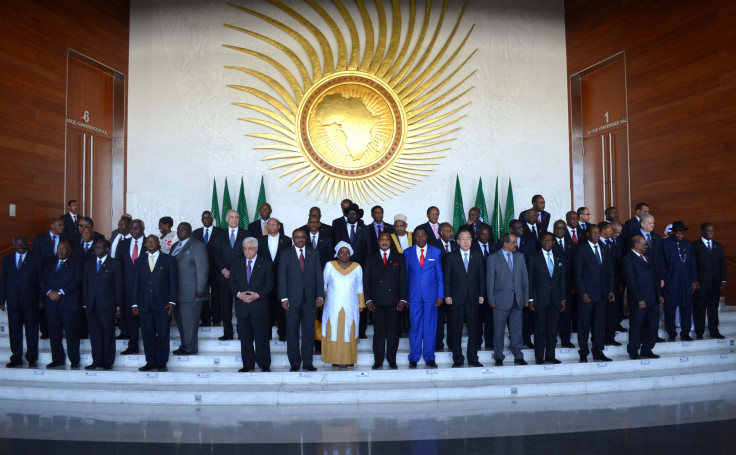African Union Celebrates 50-Year Anniversary At Weekend Summit

African leaders celebrated the 50-year anniversary of the African Union, or AU, on Saturday at the organization’s headquarters in Addis Ababa, Ethiopia.
On May 25, 1963, the AU’s predecessor, the Organization of African Unity, or OAU, was established with the goal of forging a common identity for the continent as Europe's colonial rule of Africa fell apart. At the time, national leaders, including Haile Selassie I of Ethiopia and Gamal Abdel Nasser of Egypt, saw the organization as a tool to advance autonomy across the continent; one of its original strategies was to focus on ousting the white majority leadership regimes of Namibia and South Africa.
Since then, the African Union -- as it has been called since 2002 -- has “shifted focus from supporting liberation movements in the erstwhile African territories under colonialism and apartheid, as envisaged by the OAU since 1963 and the Constitutive Act, to an organization spear-heading Africa’s development and integration” according to its official website.
The organization has been criticized for being ineffective and inefficient when it promotes peace and development on the continent. Poverty and conflict still plague the region, and the AU has often found itself at a loss to implement its initiatives to enforce order and promote cooperation across borders.
But progress is also evident on this continent of 1 billion people. Poverty rates have been declining since the 1990s, and the IMF reported in April that in sub-Saharan Africa, economic growth will hit 6.1 percent in 2014 -- far better than the global average of 4 percent. Middle classes are expanding and hubs of entrepreneurship are flourishing in rapidly expanding cities like Nairobi, Kenya and Accra, Ghana.
At the anniversary celebration on Saturday, Ethiopian Prime Minister Hailemariam Desalegn had optimistic words for the gathered dignitaries from the AU’s 54 member countries. Leaders from around the world, including U.N. Secretary-General Ban Ki-moon and U.S. Secretary of State John Kerry, were also in attendance.
“This historic day marks not only a great leap forward in the Pan-Africanist quest for freedom, independence and unity but also the beginning of our collective endeavor for the realizations of Africa's socio-economic emancipation," said Desalegn, according to the Associated Press. "The major responsibility of the current and future generations of Africans is to create a continent free from poverty and conflict and an Africa whose citizens would enjoy middle-income status."
© Copyright IBTimes 2024. All rights reserved.





















